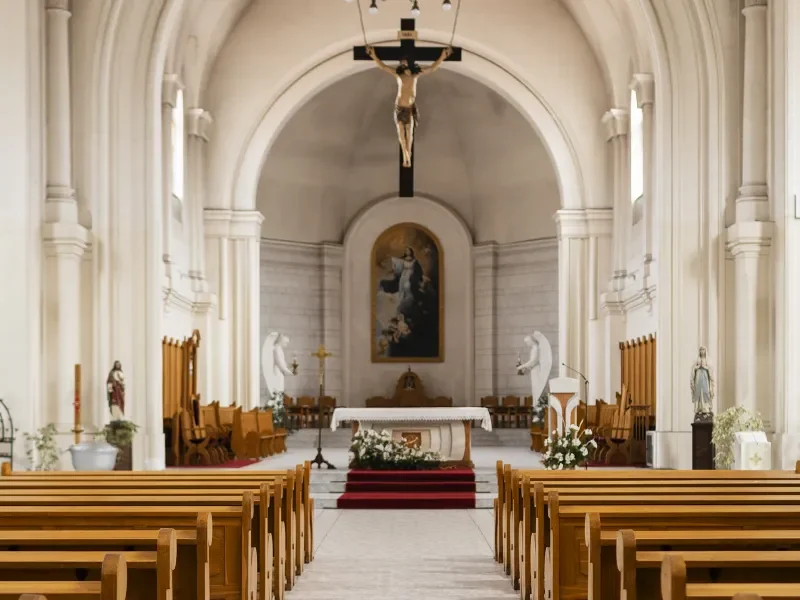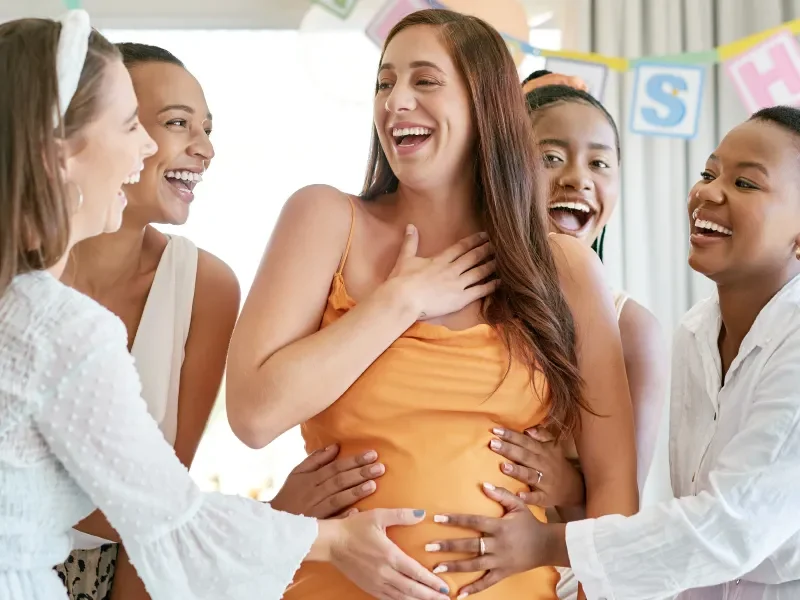When Emily’s father passes, his will leaves her a mysterious key to “the place I kept closest to my heart.” Expecting debts, secrets, or maybe a hidden double life, she unlocks a downtown apartment, and what she finds inside leaves her trembling with shock.
The brass key felt foreign in my palm, its edges worn smooth by hands that weren’t mine.
Rain drummed against the lawyer’s office window while I turned it over and over, trying to make sense of what I’d just heard.
The reading of Dad’s will had been completely normal until a few minutes ago. He hadn’t left much behind, just some savings and a few assets that he divided between me, Mom, and his sister.
Then Mr. Peterson got to the end and frowned.
“There’s one last line,” he said, looking confused. “It says, ‘For my daughter — the key to the place I kept closest to my heart.'”
And that’s when he pulled out the key and gave it to me. There was a slip of paper taped to the end, which turned out to be an address.
I glanced at Mom, hoping she might know what the hell this key unlocked.
But Mom looked just as confused as I was.
Curiosity and unease started churning in my chest. Dad had owned a second property, one nobody else knew about… why?
What had he been hiding all these years? A mistress tucked away in some downtown apartment? A gambling habit? Secret debts piling up somewhere I’d never thought to look?
The drive downtown took forever, even though it was only 20 minutes from the lawyer’s office.
My windshield wipers squeaked over the drizzle, and I parked three blocks away from the address because, honestly, I needed the walk to work up my nerve.
I kept thinking about all those nights Dad had said he was working late.
What if he’d been living some kind of double life this whole time?
The building was nice, modern, and nothing like Dad’s usual taste. It was the type of building he would’ve called ugly as we drove past. I climbed the narrow stairwell, breathing in the smell of old varnish and faint cigarette smoke that seemed baked into the walls. Each step felt heavier than the last.
I even rehearsed what I’d say if some unknown woman answered the door.
Would I be angry? Hurt? Would I demand explanations or just turn around and leave?
The lock clicked easily, and the door creaked open on hinges that needed oil. I stepped inside and froze.
Instead of the bachelor pad or secret office I’d been bracing for, I found myself standing in a kaleidoscope of colors.
Turquoise walls had been hand-painted with fluffy white clouds that looked like they were drifting across a summer sky.
Beanbags in every color imaginable were scattered across polished hardwood floors.
Bookshelves lined one wall, packed with picture books whose spines created a rainbow of their own.
And there, bolted to the floor in the corner, was an actual mini slide that led down into a pit filled with foam blocks.
But instead of relief, my unease spiked into something closer to dread. Why would my father have a child’s playground hidden away downtown?
My mind leaped to the darkest possibility I could imagine.
Did he have another family? A secret child somewhere? Was this their playroom?
I edged deeper into the space, my shoes squeaking against the polished wood. There was a faint vanilla scent in the air, maybe Play-Doh or old cookies.
Everything was clean but lived-in, loved but not quite organized.
That’s when I noticed the refrigerator in the small kitchenette. A drawing was stuck to it with a magnet shaped like a butterfly. A stick figure with wild crayon hair and a crooked smile, and underneath in shaky letters: “Mr. Dan.”
My father’s name.
My stomach dropped through the floor. But before panic could completely swallow me, I heard a soft knock at the front door, followed by the metallic turn of the doorknob.
Someone else had keys.
I gripped my phone, my thumb hovering over the emergency dial, bracing for whatever confrontation I’d been dreading since I’d first seen that key.
The door swung open to reveal a woman in her 40s with kind eyes and laugh lines, balancing a grocery bag on her hip. Three small children clung to her legs like koalas, their faces bright with excitement.
“Who are you?” I blurted out, louder than I’d intended. “And why do you have keys to my father’s… apartment?”
The woman blinked in surprise, then recognition dawned across her features.
“Oh my goodness, you must be Samantha! He talked about you sometimes, though not much. He was such a private man.”
The children had already tumbled past us both, squealing with delight as they threw themselves into the beanbags.
The oldest, maybe five, made a beeline for the slide, and soon the room was alive with laughter and the sound of little feet running across the floor.
My confusion was curdling into something sharper, more demanding.
“I’m sorry, but I still don’t understand what this place is or why you’re here.”
She set down the groceries and gestured to the lively room around us. “Your dad started this. It’s a safe space for single moms who can’t afford daycare. He paid the rent, bought all the toys, and even got certified volunteers to help watch the kids during the day. But he insisted that no one know it was him. He always said, ‘I’m not the one who deserves praise here. The moms do.'”
The words hit me like a physical blow. The image of the man I thought I knew, the distant father who’d raised me with more discipline than warmth, collided head-on with this quiet, secret kindness.
“He did this?” My voice came out smaller than I’d meant it to.
“For three years.” She nodded.
“My name’s Sarah, by the way. My youngest, Tommy, drew that picture on the fridge. Your dad would sit right there in that blue beanbag and read stories every Tuesday evening.”
But then her expression grew troubled, and she hesitated before adding, “The thing is, the lease and all the funding were in his name. Without him…” She glanced at the children, who were now building some elaborate fort with the foam blocks. “Without him, this place has to close.”
The weight of choice pressed down on my shoulders like a lead blanket.
I could let this legacy vanish, pretend I’d never found it, go back to my life and my memories of a father who’d been good enough, if not particularly warm.
Or I could step into the shadow of a man I was only now beginning to truly understand.
A little boy with curly hair toddled over and dropped a plastic dinosaur in my lap, grinning up at me with gap-toothed joy.
“Tank you,” he lisped, then wandered back to his game.
Memories of my father flashed through my mind like old photographs.
The way he’d always stop to chat with grocery store clerks, asking about their families. The extra sandwiches he’d pack on our fishing trips “just in case we met someone hungry.” The quarters he’d slip to kids at the arcade when their parents weren’t looking.
How had I missed it? How had I been so focused on what he didn’t give me that I’d completely overlooked the enormity of what he gave to others?
Sarah kneeled beside my beanbag. “I don’t want to pressure you, but we’ve got 12 families who depend on this place. Nearly 25 kids who have nowhere safe to go while their moms work two jobs just to keep the lights on.”
I looked around the room again, seeing it with new eyes.
This wasn’t just a playroom.
It was hope painted in turquoise and built from foam blocks and secondhand books. It was my father’s heart, opened up in the most unexpected way.
Tears started streaming down my cheeks before I could stop them.
“I’ll keep it going,” I whispered, then cleared my throat and said it louder. “I want this place to stay open. In his name. And mine.”
The children cheered without knowing why, their joy infectious and pure. Sarah squeezed my shoulder, her own eyes bright with unshed tears.
For the first time since Dad’s passing, I felt him right there beside me. Quiet, proud, and full of a love so much bigger than I’d ever imagined.
The kind of love that doesn’t announce itself or demand recognition. The kind that just shows up, day after day, making the world a little softer for the people who need it most.
I picked up the plastic dinosaur and smiled at the little boy who’d given it to me.
Maybe I didn’t know everything about my father after all. But I was starting to understand the most important thing: his heart had been plenty big enough. I’d just been looking in all the wrong places.


